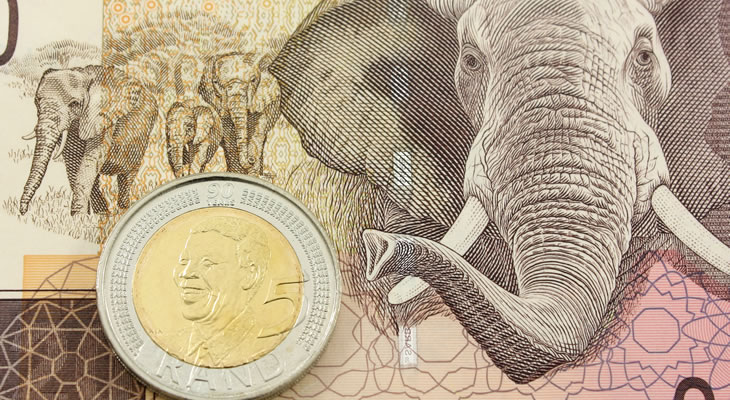Pound to South African Rand Exchange Rate Mixed as ZAR hits Worst Levels Versus USD
Despite the South African Rand’s (ZAR) significant weakness, the Pound Sterling to South African Rand (GBP/ZAR) exchange rate is struggling to sustain gains this week. Rising UK coronavirus fears are keeping pressure on the Pound (GBP).
Since opening this week at the level of 19.89, GBP/ZAR has seen fairly mixed movement. GBP/ZAR has spent much of the week trending higher.
At the time of writing is trending lower in the region of 19.93. This is close to the week’s opening levels.
The is despite the South African Rand hitting its worst ever levels against the US Dollar (USD) overnight.
Both the Pound and South African Rand are being throttled by fears over the coronavirus pandemic. For now though, investors are highly anticipating the South African Reserve Bank’s (SARB) policy decision later today.
Pound (GBP) Exchange Rates Driven by Rivals amid Lack of Domestic Developments
The Pound’s movement is mixed today. The currency is driven by movement in rival currencies.
The Euro (EUR) is slipping from recent highs and the South African Rand is broadly weak itself. The Pound is holding its ground a little better as Rand weakness is keeping GBP/ZAR from falling.
However, while the US Dollar (USD) rally is slowing slightly, the currency is still strongly gaining which is keeping pressure on the Pound. GBP/USD is trending near its worst levels since 1985.
On top of this the currency remains fairly weak overall. This is because Britain’s coronavirus outlook continues to worsen.
For much of the past week, the Pound has been plunging on rising fears that the pandemic could have a big negative impact on Britain’s economy.
The UK government’s responses have been seen as underwhelming so far. This is leaving investors eagerly awaiting more government fiscal stimulus.
South African Rand (ZAR) Exchange Rates Edge Higher in Anticipation of SARB
The South African Rand is a currency often correlated to emerging market sentiment. It has been hit particularly hard by the market’s coronavirus fears.
Concerns are rising that the global economy will be hit hard. As a result, emerging market-correlated assets have been hurtling lower.
Amid this panicked risk-aversion, the South African Rand has hit its worst levels on record against the US Dollar (USD). According to Lukman Otunuga, Research Analyst at FXTM:
‘A growing sense of unease over how badly the pandemic will hit the global economy is fuelling explosive levels of risk aversion, hitting appetite for riskier assets including emerging market currencies. South Africa’s rand was one of the many casualties of the darkening mood as the local currency breached its weakest closing level on record.’
It’s due to Pound weakness that GBP/ZAR has been unable to advance. Market anticipation for today’s upcoming South African Reserve Bank (SARB) policy decision is also helping the Rand to steady slightly.
Pound to South African Rand (GBP/ZAR) Exchange Rate Awaits SARB Decision
Most of the world’s major central banks have eased monetary policy to protect economies from the coronavirus pandemic. Today, the South African Reserve Bank (SARB) is widely expected to join them.
SARB rate cut expectations had been fairly modest at first. However the rapidly worsening global situation has caused markets to bet on a 50 basis point rate cut.
According to Analysts at ING, the Rand could fall to even deeper lows against the US Dollar (USD):
‘SARB is expected to cut 50bp. The South African rand is very exposed through its large current account deficit and low liquidity in FX. USD/ZAR risks extending the blowout to 18.’
South African Rand investors will be focused on the SARB decision, as well as any further signs of stimulus from South Africa’s government. If the SARB is more dovish than expected, Rand weakness could deepen.
Sterling investors, on the other hand, are awaiting more UK fiscal stimulus news.
If the UK Treasury is able to finally convince markets with aggressive stimulus measures, the Pound to South African Rand (GBP/ZAR) exchange rate is more likely to sustain gains.


Comments are closed.